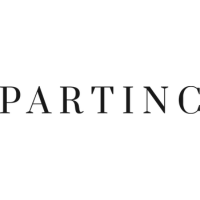Winning on the European stage
Staying ahead of the regulatory curve – How to leverage opportunities and mitigate risk in the European Union
Authors: Tomas Korseman, Trade Commissioner & Head of EU Affairs; Maria Dahlberg, Senior Project Manager & Public Affairs lead Europe; Peter Hjertsson, Project Manager; Annika Kranefeld, Senior Consultant; Qahir Bandali, Consultant
Swedish companies are increasingly recognizing the importance of engaging with the European Union to navigate regulations that impact their operations. To leverage opportunities and mitigate risks, businesses are strengthening their public affairs strategies. This article, by Tomas Korseman, Market Area Director Central Western Europe and & Head of EU Affairs at Business Sweden explores how Swedish companies engage with the EU, based on interviews with public affairs executives and secondary research on key policies and investments.
Key takeaways
Based on the research, five actions are recommended for any company that wishes to initiate or strengthen their position within the EU framework.
- Understand who and what will impact your business: Monitor the regulations, funding and stakeholders that will impact your company.
- Focus on what matters: Pick your top 2–5 issues and leave the rest to interest groups or other external parties.
- Understand your timeline and be proactive: Plan ahead as EU policies and regulations evolve.
- Identify your partners and allies: Build internal and external alliances to facilitate monitoring and influencing.
- Now is the time to act: Build your public affairs strategy to prepare for new policies and business opportunities as EU elections get underway in 2024.
INTRODUCTION: WHY A PUBLIC AFFAIRS STRATEGY MATTERS
Europe is Sweden’s economic heart, representing 74% of its exports. Europe is also a regulatory centre as 70% of all legislation impacting Swedish companies originates from the European Union. The EU sets the framework within which Swedish companies operate. How regulations are formulated or which sectors are prioritised can make or break companies’ future prospects. In short, taking a backseat is not an option. Swedish companies need to understand, manage and influence the EU.
However, since Sweden joined the European Union in 1995, EU affairs are oftentimes viewed as separate from domestic issues. To a large extent, Swedish businesses have not been engaging actively and strategically with European institutions.
But in the past years something has begun to change: Swedish businesses have increased their focus on Brussels, and this trend will only continue. Topics such as competitiveness and a green and digital recovery from the recent pandemic have seen the EU embrace trends resonating with Swedish priorities and competences.
Alongside this, an increasingly complex world with new geopolitical tensions, the pandemic, supply chain disruptions, climate change and economic power shifts have changed the reality in which companies operate. Business interests and the regulatory landscape are growing ever more intertwined, meaning it is increasingly fundamental for companies to have a well-defined public affairs strategy. For Swedish companies, this also means having a dedicated EU affairs strategy.
There is a common sentiment that more can be done – Sweden is not fully engaging the EU to the point where opportunities are fully captured and risks are managed. A long-term, proactive, systematic approach will be key to leveraging opportunities and managing risks emanating from the EU. 2024 is especially important given that the European elections will bring in a new Parliament, new Commission, and new priorities.
To understand the opportunities and risks in the EU, this article investigates three key questions:
- What are the main EU priorities, programmes and regulations that can have both positive and negative impact on Swedish businesses?
- How do Swedish companies go about managing risks and capturing opportunities, and what should they consider for future engagement with the EU to fully benefit from business opportunities?
- How do Swedish companies collaborate with external parties to best position themselves in the EU, be it value chain allies, other Swedish companies, consultancy firms or trade associations?
To uncover the answers, we have interviewed key Swedish export companies who are notably impacted by EU regulations. We have also interviewed interest organisations, political representatives and market experts active in the EU to get their perspective. Our aim is to give companies with public affairs teams as well as SMEs relevant insights into.

The European Union is a unique partnership between 27 European member countries, home to nearly 450 million people and with a global GDP share as well as a world trade share both of around 15%. The EU has an impact on the daily lives of its citizens, businesses and institutions in practically all realms of society. The EU of course exists in a larger context, and external forces also have a strong impact on both the EU as an institution as well as its businesses, not least the likely upcoming enlargement.
The geopolitical context
The EU went through some years of inward-looking focus, with Brexit and willful East European member countries requiring political attention, but this came to an end with the brutal wake-up call as Russia invaded Ukraine. The war has had far-reaching consequences for the political and economic landscape on the European continent. Meanwhile, geopolitical tensions have steadily been growing as Europe, the US, and China compete for influence, against a backdrop of rising economies such as India, Brazil, Indonesia, South Africa, Türkiye and the UAE.
Many of the large Swedish companies interviewed for this article have global operations and the public affairs executives were all well-informed about geopolitical tensions and considered it something crucial to constantly monitor and feed into business strategies and decision-making.
The USA and Europe both agree on a need to decouple from China. Many companies seem to have embarked on a scaling back of their operations in China – or scaled down expansion plans. But after decades of interdependence, it is no easy task. Meanwhile, new markets like India are growing in importance on the global stage. The EU leverages free trade agreements and our interviews identified substantial economic benefits for Swedish companies if the EU were to conclude a free trade agreement with India.
Large pandemic recovery packages funded by the EU and the recent launch of an ambitious industrial policy aim to strengthen the EU’s international competitiveness. This is a major point of discussion and, during its presidency in 2023, Sweden made competitiveness as one of the key priorities on the political agenda. Moreover, the EU Commission will compile a report on how to revitalise the EU economy in the face of competition from China and the US. The business community is tightly involved in this work and the hope is that companies will benefit in the next few years from the EU’s renewed focus on competitiveness.
Read the full article here: (2) Winning on the European stage | LinkedIn































